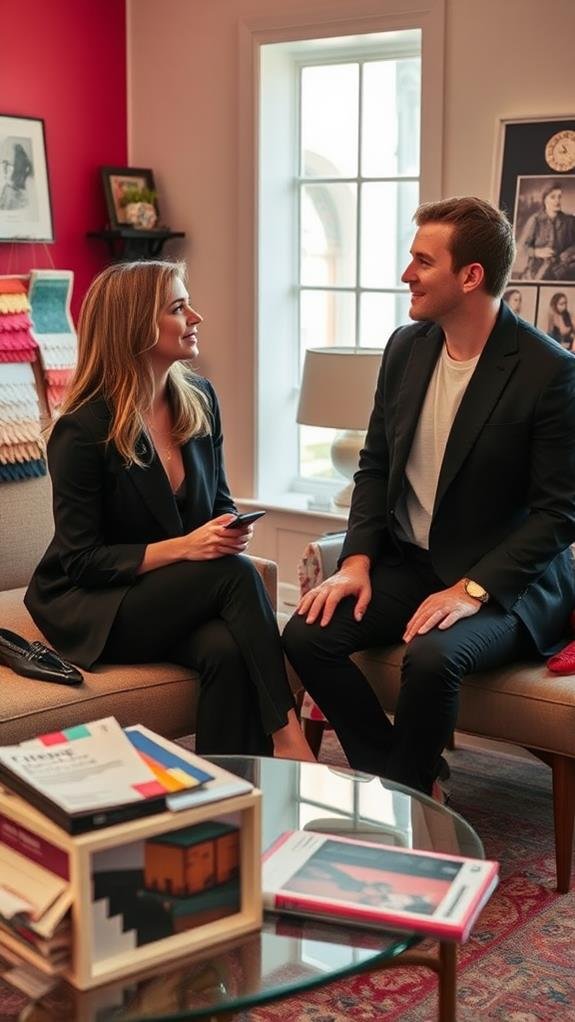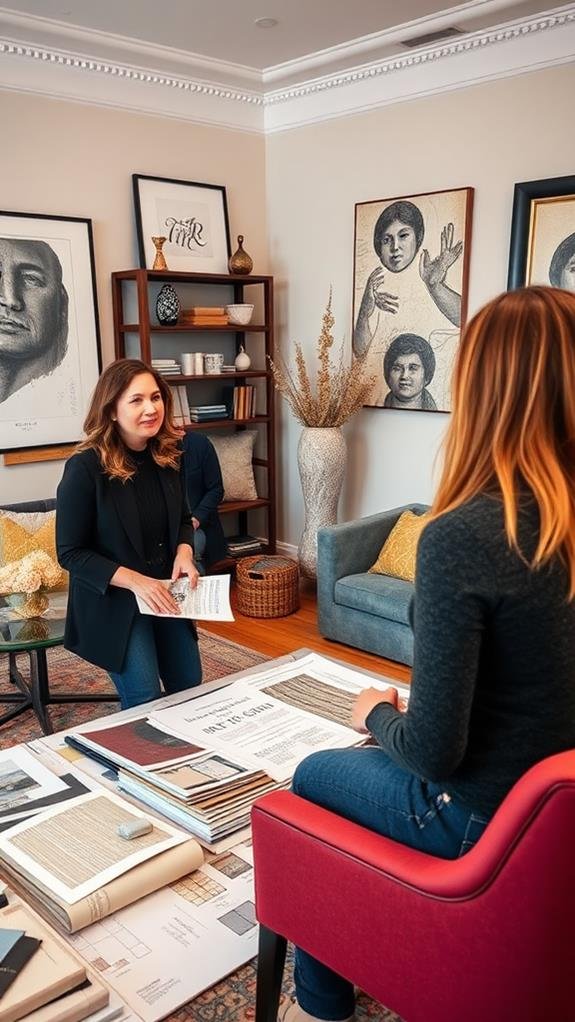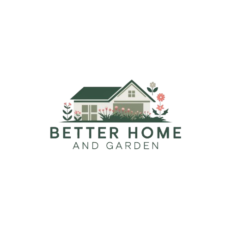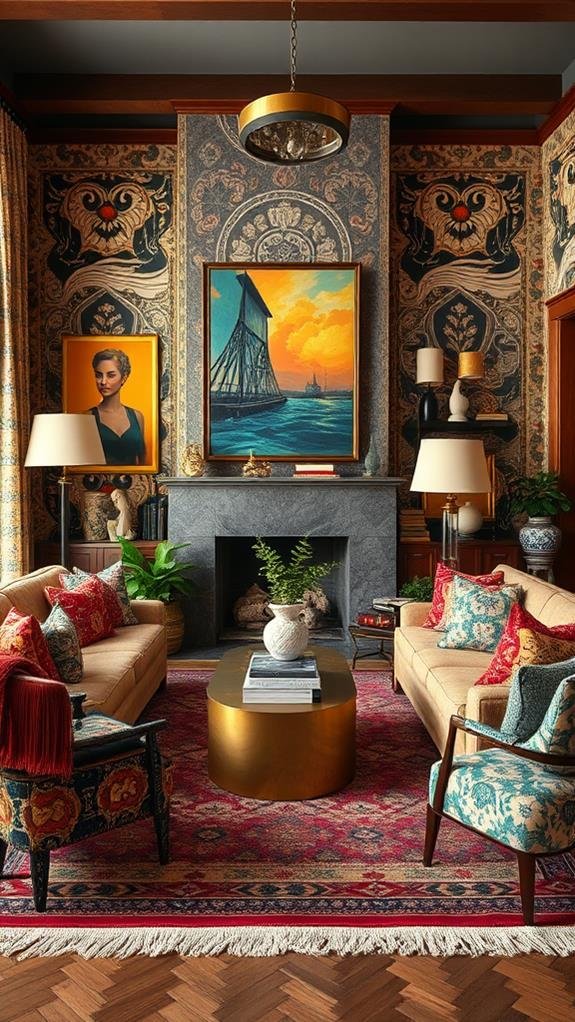Essential Qualities to Look for in an Interior Designer
When choosing an interior designer, look for a strong portfolio that showcases their unique style and diverse experience. Clear communication is key, so they should listen to your needs and articulate their vision well. Creative problem-solving abilities help them tackle any challenges that arise. Make certain they understand your style and can manage your budget effectively, keeping expenses in check while delivering stunning designs. Reliable project management guarantees timely completion, and a collaborative approach fosters a positive relationship. With these qualities, you’ll find a designer who can create the space of your dreams. There’s so much more to investigate on this topic!
Key Takeaways
- A strong portfolio showcasing diverse styles and successful transformations is essential for evaluating an interior designer’s creativity and expertise.
- Effective communication and listening skills foster a collaborative approach, ensuring the designer understands and meets client needs.
- Creative problem-solving abilities help navigate challenges while maintaining the project’s vision and budget.
- Knowledge of current trends allows the designer to create relevant and appealing designs while incorporating timeless elements.
- Attention to detail ensures a cohesive and harmonious design, balancing big-picture ideas with the finer points of interior aesthetics.
Strong Portfolio and Experience

A strong portfolio is an essential tool for any interior designer looking to make their mark in the industry. It showcases your unique style, skills, and creativity, giving potential clients a glimpse of what you can achieve.
When you create a portfolio, include a variety of projects that highlight different styles, materials, and spaces. This diversity helps demonstrate your versatility.
Don’t forget to add before-and-after photos to show your impact. Also, share any relevant experience you have, such as internships or collaborations, as it adds credibility.
Clear Communication Skills

Effective communication can’t be overlooked in the domain of interior design. When you’re working with an interior designer, their ability to share ideas clearly and understand your needs is essential. You want someone who can express their vision while also listening to your preferences. This dialogue guarantees that your style and personality are reflected in the designs.
A designer with clear communication skills will help avoid misunderstandings or costly mistakes during the project. They’ll explain their concepts, provide updates, and address any concerns precisely.
This transparency builds trust, making the entire process smoother and more enjoyable for both parties. So, when choosing an interior designer, prioritize those who can articulate ideas clearly and listen attentively, making certain your project aligns with your vision.
Creative Problem-Solving Abilities

In many renovation projects, unexpected challenges are bound to arise, and that’s where creative problem-solving abilities come into play for an interior designer. You want someone who can think outside the box when faced with issues, whether it’s a sudden change in budget or a delay in materials.
A skilled designer can investigate alternative options and visualize solutions that mightn’t be immediately obvious. They’ll look for ways to maximize space, improve functionality, and augment your overall vision, turning potential setbacks into unique opportunities.
This adaptability guarantees that your project stays on track and reflects your style. So, when choosing your designer, make certain they demonstrate a knack for innovative thinking and can navigate obstacles with ease.
Understanding of Your Style

When starting on a design journey, finding an interior designer who understands your unique style is essential.
You want someone who listens to your ideas and captures your vision, whether it’s modern minimalism or cozy farmhouse charm. A good designer doesn’t just follow trends; they get what makes your heart sing.
They’ll ask questions about your preferences, favorite colors, and how you wish to feel in your space. This understanding allows them to suggest ideas that truly reflect who you are.
By sharing your inspirations, your designer can create a space that feels personal and inviting. When your style is understood, the whole design process becomes enjoyable, making your dream home a reality.
Budget Management Expertise

A designer who truly gets your style also knows how to manage your budget effectively. They’ll help you prioritize your spending, focusing on the essentials first.
A good designer understands that staying within budget doesn’t mean sacrificing style; it’s about making smart choices. They’ll suggest creative solutions, like using high-impact accessories instead of expensive renovations, and know where to find quality materials at lower prices.
Plus, a professional designer will include budgeting in their planning process, so you won’t face any unpleasant surprises. When you work with someone skilled in budget management, you can fully adopt your vision without stressing over costs.
In the end, this expertise helps create a beautiful space that fits your financial plan!
Knowledge of Current Trends

Staying attuned to current trends is essential for any interior designer who wants to create spaces that resonate with clients.
You’ll want to keep an eye on what’s hot and what’s not in the world of design. This means paying attention to colors, materials, and styles that are popular right now. Knowing these trends allows you to suggest fresh ideas that match your clients’ tastes and dreams.
It’s also important to understand how to blend trendy elements with classic designs, ensuring the space remains timeless. Regularly reading design magazines, blogs, and attending industry events can keep you informed.
When you’re up-to-date, you’ll inspire confidence and show clients that you’re passionate about creating beautiful, modern interiors they’ll love.
Attention to Detail

Mastering attention to detail can make or break an interior designer‘s project. It’s the small things that truly improve a space from ordinary to extraordinary. When you choose a designer, you want someone who notices the subtleties, whether it’s the perfect paint color or the way the curtains hang just right.
A great designer carefully considers how various elements work together, ensuring that colors, textures, and patterns complement each other seamlessly. They’ll pay attention to lighting, furniture arrangements, and even the choice of accessories that embellish the overall look.
With their keen eye for detail, you’ll find that every room feels harmonious and thoughtfully designed. You want someone who can see the big picture while also appreciating the finer points in every design choice.
Reliable Project Management

As far as reliable project management is concerned, keeping everything on track is essential for a successful interior design project. You want an interior designer who organizes timelines, budgets, and resources effectively.
Good project management means they’ll break down tasks into manageable parts and guarantee each phase is completed on time. They should communicate regularly, updating you on progress and any potential issues. This way, you aren’t left in the dark while they work.
A dependable designer also anticipates challenges, finding solutions before they escalate. Ultimately, you’ll feel more confident knowing your project is in capable hands, leading to a smoother process and a fabulous end result.
Trust their skills, and you’ll enjoy the journey to your dream space even more!
Collaborative Approach

A successful interior design project thrives on collaboration between you and your designer. This partnership means sharing ideas, preferences, and feedback to create a space that truly reflects your style.
When your designer listens to your vision, they can incorporate your needs and aspirations into the design. Don’t hesitate to express your thoughts—your insights are invaluable for shaping the project.
A collaborative approach also encourages creativity. As you discuss options, your designer can suggest innovative solutions you mightn’t have considered.
Working together not only helps build trust but also guarantees that you stay on the same page throughout the process. Ultimately, this teamwork leads to a more satisfying result, leaving you with a space that feels just right for you.
Good Listener

One key quality that sets apart a great interior designer is their ability to be a good listener. When you share your ideas and preferences, a designer who truly hears you can transform your vision into reality.
Being attentive means they pick up on your specific needs, desires, and even concerns you mightn’t voice directly. This understanding helps them create spaces that reflect your style and functional requirements.
A good listener also encourages open communication, making you feel valued throughout the design process. You’ll likely feel more confident in your decisions, knowing your designer is committed to understanding you.
Ultimately, their listening skills pave the way for successful collaboration and a beautifully tailored space that feels just right for you.
Strong Client References

Strong client references often serve as a demonstration to an interior designer’s expertise and reliability.
When you’re searching for the right designer, hearing positive feedback from previous clients can give you confidence in your choice. Listen for insights about their creativity, communication skills, and ability to meet deadlines.
A designer with a solid track record will often have clients who are enthusiastic to share their experiences, showing you the quality of work you can expect. You might also ask for photos of past projects, as these can reflect the designer’s unique style and capabilities.
Ultimately, strong client references can help you feel secure in your decision while inspiring trust in the designer’s ability to bring your vision to life.
Conclusion
To sum up, finding the right interior designer is all about knowing what qualities to look for. A strong portfolio, clear communication, and good problem-solving skills are essential. It’s also important that they understand your style and can manage your budget. With a reliable project management approach and a collaborative mindset, your designer should feel like a team member. By considering these traits, you’re sure to create a beautiful space that reflects your personality and meets your needs!


